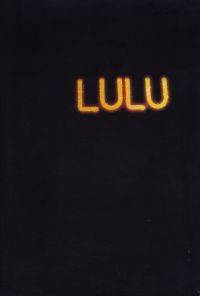
Production information and pictures
Review / London Evening Standard / 20.3.01
Review / The Independent / 21.3.01 (below)
Review / The Times / 21.3.01
Review / Time Out / 28.3.01 - 4.4.01
|
|
Production information and pictures Review / London Evening Standard / 20.3.01 Review / The Independent / 21.3.01 (below) Review / The Times / 21.3.01 Review / Time Out / 28.3.01 - 4.4.01 |
|
One death by natural causes, one death by slashed jugular, one fatal shooting, one suicide by hanging (failed), plenty of degradation and despair, hints of incest and other forms of child abuse, all topped off by a monstrous visitation by Jack the Ripper: it's not hard to see why Wedekind's Lulu, the classic tale of a fatal child-woman without mercy, has the reputation for being a bit of a downer. Oddly enough, Nicholas Wright's new version goes for the laughs, at least in its briskly paced and skilfully played first half; odder still, it gets them. |
|
Wright has seen in the play's opening the possibility of a kind of wild Brian Rix vehicle, as re-imagined by Kraft-Ebbing - a gloriously savage exercise in the comedy of callousness. Doors fly open and marriages teeter on collapse while life-blood seeps away in the next room. Only in the second half does the tone become sombre, and the horror start to well up.
This quietly- inspired re-reading has some unexpected effects. For previous generations, Lulu has appeared either as a frightening, almost demonic force, a vortex of uncontrolled sexual energy that drags in every man and not a few women; or - the standard feminist reading - as a blank screen on to which men project their desires. (Paul Auster, who recently reworked the story in his under-rated film Lulu on the Bridge observed that, in this sense, she was the world's first movie star.)
Anna Friel's reading of the part retains something of the latter "all men are fools" quality, but finds new things, too. Throughout the first half, in which she slinks, struts and throws her legs wide apart at the drop of a pair of trousers, she manages to be not only highly sexy (the sine qua non of the role) but also childishly surprised and even amused by her own power to enthral the male of the species.
Anyone foolish enough to have left at the interval would have gathered entirely the wrong impression of her performance, though: as Lulu grows sadder and more vulnerable, so her performance gains in nuance and depth, and the sensual prowling gives way to a girlish hesitancy and neediness, including - a fine detail - nervous plucking at the edge of her anachronistic miniskirt. It is admirably done, and handsomely complemented by a strong ensemble that includes Alan Howard as the wearily knowing Dr Schoning, who talks like a burned-out editorial writer, and James Hillier as Lulu's gawky, idealistic second husband, Schwartz.
Jonathan Kent directs the piece with unflagging clarity, and the outstandingly imaginative design by Rob Howell uses relatively limited means to play up violent extremes of affluence and squalor. Perhaps the single most remarkable aspect of the whole production is that not once did I find myself thinking of Louise Brooks in the classic Pabst film - let alone pining for her.
Kevin Jackson.
The Independent, 21.3.01.